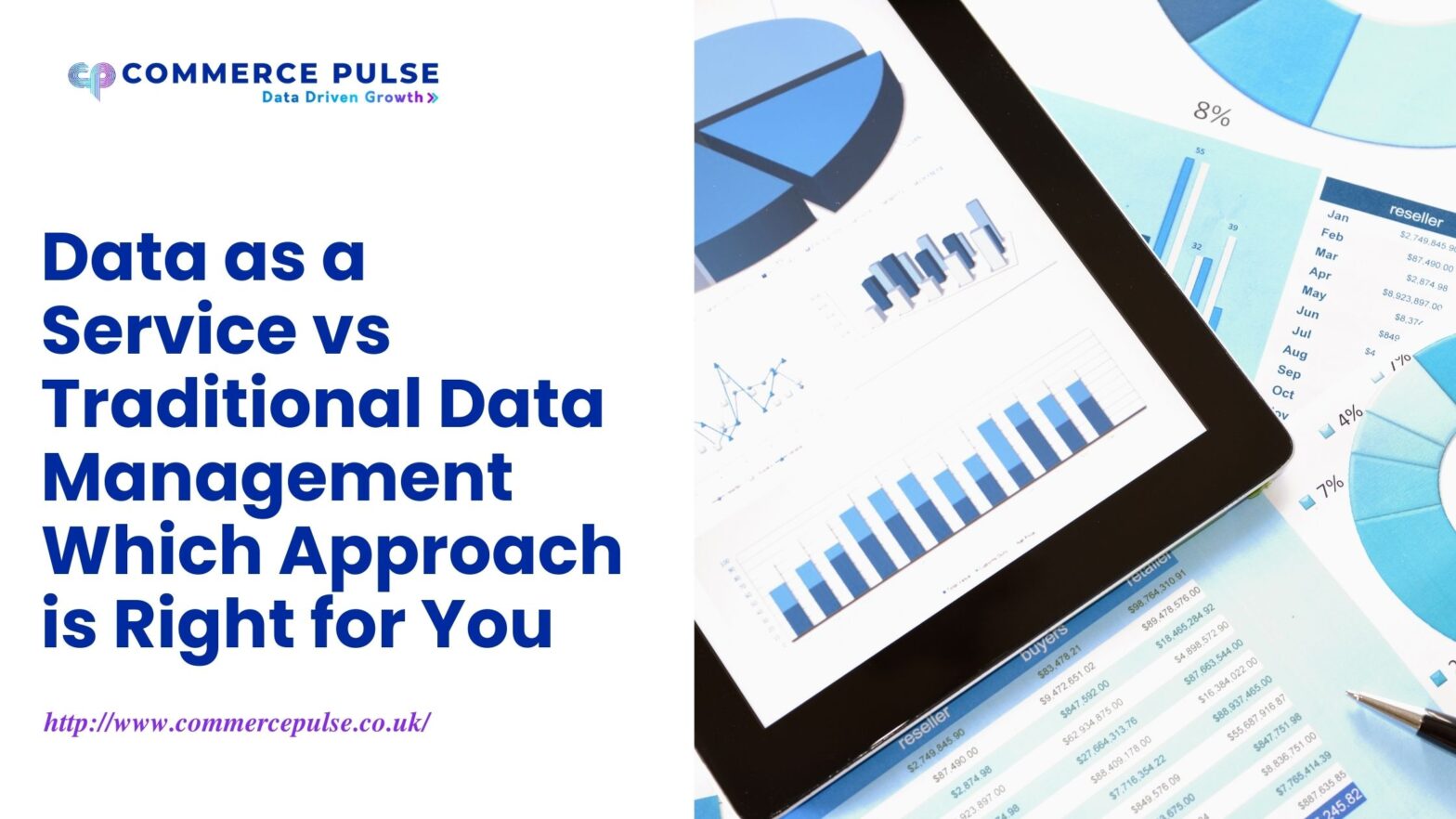In today’s data-driven business landscape, organizations like Commerce Pulse must navigate the complex world of data management to stay competitive. With the vast amount of data being generated every day, it has become crucial for companies to find efficient and effective ways to handle and leverage their data assets. Two popular approaches that have emerged are Data as a Service (DaaS) and traditional data management. In this blog post, we will explore the key differences between these approaches and help Commerce Pulse determine which one is the right fit.
Traditional data management has been the conventional method of handling data within organizations for decades. It involves establishing and maintaining an in-house data infrastructure, including servers, storage systems, and a dedicated IT team. With traditional data management, Commerce Pulse would have complete control over its data, allowing for customization and tailoring of data processes according to specific needs. This approach requires significant upfront investments in infrastructure, software licenses, and skilled personnel.
On the other hand, Data as a Service (DaaS) is a cloud-based model that enables companies to access and utilize data on-demand through third-party service providers. With DaaS, Commerce Pulse can outsource various aspects of data management, including storage, integration, analytics, and visualization. DaaS providers offer scalable and flexible solutions that can be accessed over the internet, eliminating the need for extensive infrastructure investments. This approach offers agility, cost-efficiency, and access to advanced data technologies without the burden of in-house maintenance.
To determine the right approach for Commerce Pulse, let’s consider the following factors:
- Scalability: As Commerce Pulse continues to grow and expand its operations, scalability becomes a crucial consideration. Traditional data management requires upfront investments in hardware and infrastructure, making it challenging to quickly scale up or down based on changing needs. DaaS, on the other hand, offers instant scalability, allowing Commerce Pulse to adjust resources as required without the hassle and cost of infrastructure upgrades
- Cost: Budget is a significant factor for any business decision. Traditional data management involves substantial upfront and ongoing costs, including hardware purchases, software licenses, maintenance, and personnel expenses. DaaS operates on a pay-as-you-go model, where Commerce Pulse only pays for the services and resources it uses. This cost-effective approach allows for better budget control and allocation of resources
- Data Security: Data security is a top concern for Commerce Pulse, especially when dealing with sensitive customer information. Traditional data management offers a higher level of control and customization, allowing Commerce Pulse to implement stringent security measures and comply with industry regulations. DaaS providers also prioritize data security and invest in robust security protocols. However, it’s essential to evaluate the security measures and certifications of any potential DaaS provider to ensure they align with Commerce Pulse’s data protection standards.
- Expertise and Resources: Traditional data management requires a skilled IT team to handle infrastructure maintenance, data integration, and analytics. Commerce Pulse must assess its in-house expertise and resources to determine if it has the necessary personnel and knowledge to manage data effectively. DaaS can be an attractive option as it leverages the expertise of the service provider, allowing Commerce Pulse to focus on utilizing data insights for business growth rather than managing infrastructure.
- Flexibility and Agility: In today’s fast-paced business environment, agility and quick decision-making are crucial. DaaS offers faster deployment and time-to-market compared to traditional data management. With DaaS, Commerce Pulse can rapidly implement data solutions and access real-time insights, enabling faster and more informed business decisions.
In conclusion, selecting the right approach to data management is a critical decision for Commerce Pulse. It requires careful consideration of factors such as scalability, cost, data security, expertise, and agility. Traditional data management offers control and customization but comes with higher upfront costs and resource requirements. DaaS provides scalability, cost-efficiency, and access to advanced data technologies without the need for extensive infrastructure investments. Commerce Pulse should assess its specific needs, resources, and growth plans to determine whether a traditional approach or Data as a Service aligns better with its goals and priorities.
By making an informed decision, Commerce Pulse can optimize its data management strategy and harness the power of data to drive business success in the dynamic digital landscape.

